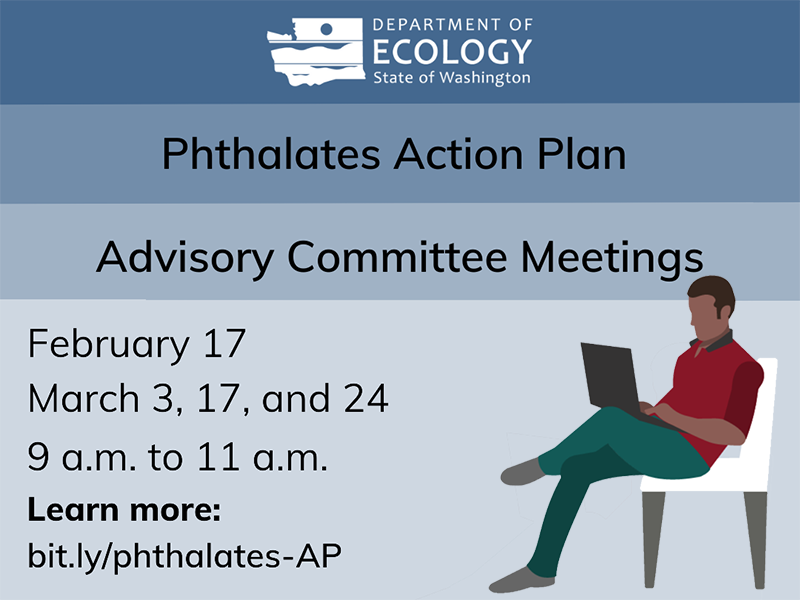
Did you know that nearly 90% of Americans have measurable levels of phthalates in their bloodstream? Phthalates are a class of chemicals commonly used to add flexibility to plastics and extend the life of scents in fragrances. We’re working with the Washington State Department of Health and with stakeholders to generate a plan that will reduce human and wildlife exposure to phthalates, and we would like your input.
Our advisory committee, whose members come from industry, local governments, environmental groups, and academia, is working to draft a phthalates action plan that will identify potential health and environmental effects of phthalates and recommend strategies to reduce impacts in Washington. The advisory committee will use upcoming meetings to scope ideas, eventually creating an outline of the action plan content.
So, what do you think?
Please join us during any of the action plan advisory committee meetings, which will take place via Zoom. (You can also visit our Phthalates Action Plan project page for dial-in meeting links, if it’s easier to attend by phone.) Each meeting will focus on a specific topic area and will include an introduction by Ecology staff and a discussion with stakeholders who are experts in their field. There will be an opportunity for public questions and input at the end of each meeting.
- February 17 — Phthalates in industry and manufacturing, from 9 a.m. to 11 a.m.
- March 3 — Phthalates in products, from 9 a.m. to 11 a.m.
- March 17 — Phthalates in waste systems, from 9 a.m. to 11 a.m.
- March 24 — Phthalates in the environment, from 9 a.m. to 11 a.m.
Other opportunities to weigh in
Attending these scoping meetings is a great way to be involved early in the action plan process. The advisory committee meetings give us an opportunity to learn from the committee members and other subject matter experts. This open dialogue helps make sure we’re heading in the right direction with the phthalates action plan scoping and identify if we have any missing pieces.
As advisory committee members dig deep into the topics, meeting content and discussions will likely be detailed and technical. If you would prefer a less technical forum, there will be other involvement opportunities, such as additional input meetings in 2022 and a public comment period in 2023.
We’ve learned that most Americans are exposed to phthalates in their day-to-day lives. As we develop recommendations to reduce phthalate use, release, and exposure, we would like your feedback. We plan to use it to make sure we’re considering this issue from all angles. Whether you can attend an advisory committee meeting or choose to join the action plan process at a later date, please reach out by email, ask us questions, and share your ideas via our online comment form.

